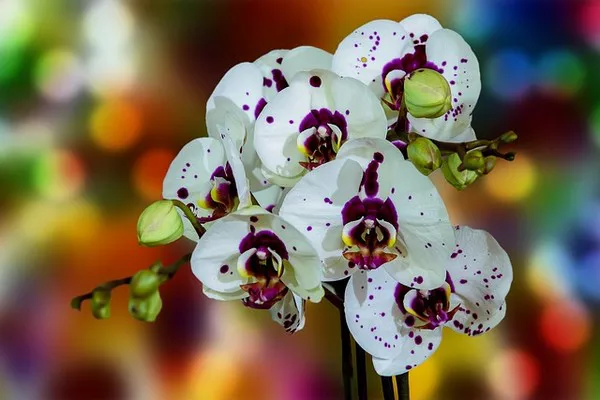Orchids, with their exquisite beauty and captivating allure, have long fascinated horticulturists and enthusiasts alike. As a diverse family of flowering plants, they have successfully adapted to various environments, earning them a reputation for resilience and longevity. In this article, we delve into the fascinating world of orchids to understand just how long these remarkable plants can live.
Orchids: A Brief Overview
Orchids belong to the Orchidaceae family, one of the most extensive plant families globally, comprising over 25,000 known species and countless hybrids. Their natural habitats range from rainforests and mountains to deserts and swamps, demonstrating their ability to thrive in diverse conditions. These unique adaptations have played a crucial role in the longevity of orchid plants.
Orchid Lifespan: Factors Influencing Longevity
1. Genetic Diversity
One of the primary factors contributing to the lifespan of orchids is their genetic diversity. With thousands of species and numerous hybrids, each possesses distinct genetic traits that influence their longevity. Certain species, such as the Phalaenopsis (moth orchid), Cattleya, and Dendrobium, have been known to live for several decades under appropriate care.
2. Natural Habitat
The environment in which an orchid naturally grows greatly affects its lifespan. Orchids adapted to specific habitats tend to live longer when cultivated in similar conditions. For instance, epiphytic orchids that grow on tree branches may have a longer life span when placed in a suitable orchid bark mix, simulating their natural substrate.
3. Cultural Care
Proper care and maintenance significantly impact the longevity of an orchid plant. Adequate watering, appropriate light exposure, balanced fertilization, and proper humidity levels all contribute to the plant’s overall health and lifespan. Neglect or overzealous care can lead to early deterioration and reduced longevity.
Orchid Longevity Across Different Species
1. Phalaenopsis Orchids (Phalaenopsis spp.)
Phalaenopsis orchids, also known as moth orchids, are among the most popular and widely cultivated orchids globally. Their longevity varies depending on factors such as genetic makeup and environmental conditions. Under optimal care, a well-established Phalaenopsis orchid can live for 20 to 30 years or more, producing stunning blooms year after year.
2. Cattleya Orchids (Cattleya spp.)
Renowned for their vibrant and fragrant flowers, Cattleya orchids have a lifespan that spans several decades. With proper care and suitable growing conditions, a healthy Cattleya can thrive for 30 to 50 years or even longer.
3. Dendrobium Orchids (Dendrobium spp.)
Dendrobium orchids exhibit incredible diversity, with different species showcasing various growth habits and lifespans. Some Dendrobium orchids have been known to live for over 50 years under optimal conditions, delighting orchid enthusiasts with their longevity.
4. Vanda Orchids (Vanda spp.)
Vanda orchids, popular for their vibrant colors and unique appearance, can live for several decades. With appropriate care and a favorable environment, a well-maintained Vanda orchid can continue to bloom for 20 to 30 years or more.
Exceptional Longevity: Famous Orchids in History
1. The “Old Lady” Orchid (Thelymitra crinita)
The “Old Lady” Orchid, also known as Queen of Sheba or Fringed Pink Fingers, is believed to have lived for an astonishing 150 years in the wild. This remarkable longevity is attributed to its ability to lie dormant underground during adverse conditions and resurface during favorable periods.
2. The “Orchid Queen” (Grammatophyllum speciosum)
The “Orchid Queen,” also called the Tiger Orchid or Queen of the Orchids, is renowned for its massive size and extraordinary lifespan. This species can live for up to 100 years or more, captivating admirers with its majestic presence.
The Role of Reproduction and Propagation
The ability of orchids to reproduce and propagate plays a significant role in their longevity. Many orchids produce tiny dust-like seeds that require specific conditions, such as symbiotic relationships with fungi, to germinate. This unique adaptation ensures the survival of the species even in challenging environments, contributing to their longevity.
Orchids in Cultivation: Extending Lifespan through Hybridization
Horticulturists and botanists have long been fascinated with hybridizing orchids to create new and improved varieties. Hybridization can sometimes lead to longer-lived orchids, as it allows the combination of desirable traits from different species. Through selective breeding, scientists have successfully extended the lifespan of some orchids while enhancing their beauty and overall vigor.
The Impact of Human Intervention
Human activities have both positive and negative effects on the longevity of orchids. Orchid conservation efforts, such as protecting natural habitats and establishing botanical reserves, contribute to the preservation of endangered species, ensuring their longevity for future generations. On the other hand, illegal harvesting, deforestation, and climate change pose significant threats to wild orchids, endangering their long-term survival.
Conclusion
Orchids, with their stunning blooms and remarkable adaptations, continue to captivate us as one of nature’s most elegant creations. The longevity of these enigmatic plants is a testament to their resilience and adaptability to diverse environments. With the proper care and conservation efforts, we can ensure that these timeless beauties continue to grace us with their presence for generations to come. As we continue to unravel the secrets of orchid longevity, let us cherish and protect these extraordinary plants that have enchanted us throughout history.


